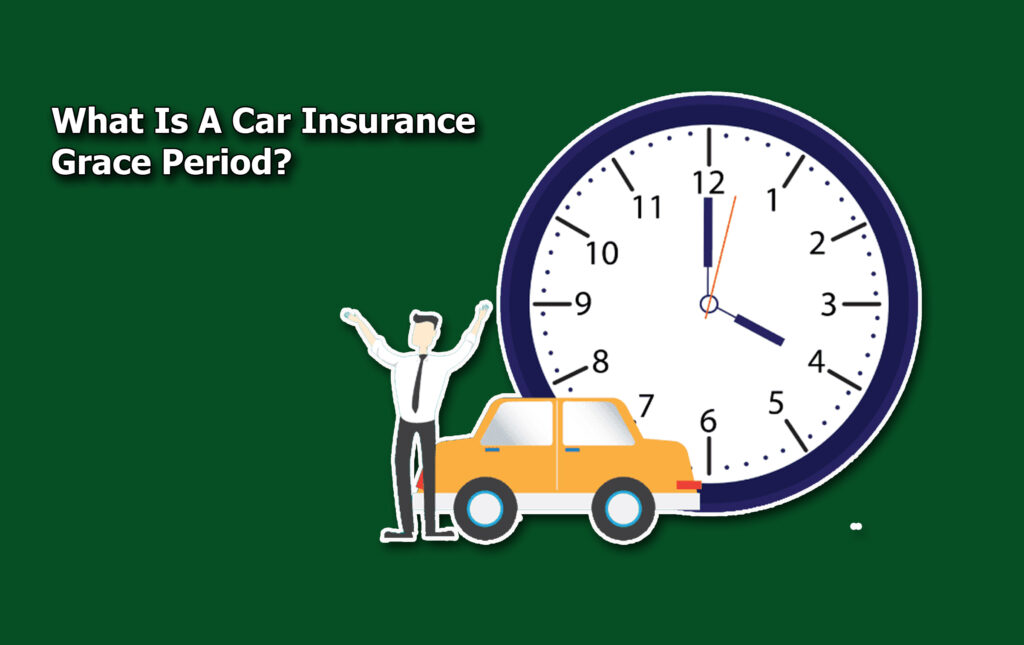Ever missed a payment by a few days and worried your car insurance might get canceled right away? That’s where a car insurance grace period comes in.

It’s a short amount of time after your payment is due when your policy might still stay active; even if you haven’t paid yet.
But not all insurance companies offer the same rules, and the length of this grace period can vary.
Knowing how this works can help you avoid losing coverage or facing penalties if you’re ever running a little behind.
Hence in this blog post, we will explore what car insurance grace period is all about. Therefore, we implore you to stick with us until the end to be enlightened.
What Is A Car Insurance Grace Period?
A grace period is the extra time your car insurance company gives you to make a payment after your due date.
During this time, your policy is still active, even though your payment is late. It’s like a short safety net to help you avoid losing your coverage right away.
For example, if your car insurance bill is due on the 1st and your grace period is 7 days, you may still be covered until the 8th; as long as you pay before that window closes.
But here’s the important part: not all companies offer a grace period, and some may cancel your policy immediately if you miss the due date.
That’s why it’s important to check your insurance policy or contact your provider to know the exact terms.
Why Does the Grace Period Matter?
The grace period gives you a small buffer to avoid a lapse in coverage, which can be expensive and risky. If your insurance gets canceled, even for a few days, it can lead to:
- Higher future premiums: Insurers may charge more if you’ve had a break in coverage.
- Fines or penalties: Driving without insurance is illegal in most states and could lead to tickets or other legal trouble.
- Financial risk: If you get into an accident without coverage, you’ll be responsible for all the costs out of pocket.
A grace period helps protect you from all that while giving you a bit of breathing room if you need a few extra days to make a payment.
How To Know If Your Policy Includes a Grace Period
Not all car insurance policies include a grace period, and the rules can vary by company and state. Here’s how you can find out:
- Check your policy documents: Look for terms like “grace period,” “late payment,” or “policy cancellation.”
- Contact your insurer: A quick call or message can confirm whether you have a grace period and how long it lasts.
- Look for state-specific rules: Some states require insurers to offer a grace period, while others do not.
It’s always better to know in advance rather than find out after your coverage has already lapsed.
What Happens If You Miss the Grace Period?
If you don’t make a payment within the grace period, your insurer may cancel your policy. This means you’ll no longer be covered, which can put you at financial risk if you get into an accident.
Also, driving without insurance is illegal in most states, and it can lead to fines, license suspension, or even impoundment of your vehicle.
Worse, a gap in coverage can make your next insurance policy more expensive. Insurers may see you as a higher risk if they notice you’ve had a lapse in coverage.
How To Avoid Missing Payments
Here are some simple tips to help you avoid the stress of dealing with late payments:
- Set up automatic payments so you never forget your due date.
- Mark your calendar with payment reminders.
- Choose a due date that works for you, like right after payday.
- Download your insurer’s mobile app for notifications and quick access.
Being proactive can help you stay on top of your payments and avoid issues with your insurance.
Bottom Line
A car insurance grace period gives you a little extra time to make your payment, but it’s not something to rely on regularly.
Always check your policy or call your insurer to understand how much time you have; and what happens if you miss it.



